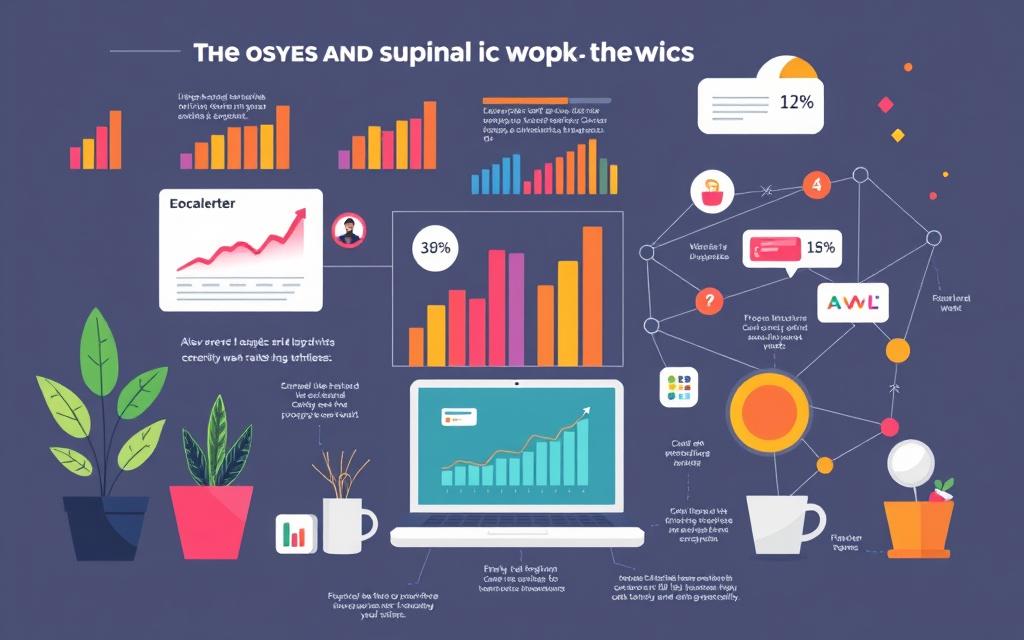In today’s competitive job market, retaining top talent is no longer just a luxury; it’s a necessity. High turnover rates can disrupt productivity and negatively affect your financial performance. That’s why implementing effective talent retention strategies is essential for fostering employee loyalty and ensuring a stable workplace culture. For instance, Nfrastructure boasts an impressive retention rate of over 97%, a feat rarely seen in the IT industry, underscoring the profound benefits of solid retention programs.
Understanding what motivates your workforce, particularly Millennials and GenZers who prioritize personal development, can greatly enhance your hiring and retention efforts. By aligning corporate values with candidates’ beliefs and offering attractive compensation packages, you can cultivate a loyal team ready to tackle the challenges of a competitive market. When employees feel valued and recognized, they are more likely to stay engaged and committed to your organization.
Understanding the Importance of Employee Retention
Employee retention reflects a company’s ability to keep its workforce, which is essential for maintaining stability and productivity. High turnover rates can disrupt operations and lead to significant financial losses. Estimates suggest that replacing an employee often costs between one-half to two times their annual salary. This emphasizes the importance of effective retention techniques. Investing in employee loyalty can save a company considerable expenses while boosting overall performance.
Recent findings reveal concerning trends in employee engagement. A global survey by Gallup noted that over half of employees showed interest in leaving their jobs, with 59% feeling disengaged and 18% actively dissatisfied. Hence, organizations should focus on creating an engaging workplace culture to combat this trend. The rapport between engaged employees and business success is evident; highly engaged teams demonstrate 10% higher customer satisfaction rates and 23% greater profitability.
It is crucial to prioritize retention techniques that foster strong connections between employees and their roles. Initiatives such as engaging onboarding processes, clear communication channels, and alignment of corporate values with employee aspirations play a vital role in nurturing a loyal workforce. Over 41% of employees indicated an improved workplace culture could significantly impact their decision to stay. Thus, addressing factors such as recognition, career advancement, and well-being contributes to higher retention rates.
Building a Strong Workplace Culture
A robust workplace culture serves as the backbone of any organization, shaping employee experiences and influencing engagement levels. Establishing this vital framework requires a commitment to clearly defining corporate values. These values should resonate throughout the employee journey, guiding interactions and decision-making processes. Prioritizing a culture of inclusion and belonging significantly enhances employee satisfaction, fostering a community where individuals feel valued and empowered.
Defining Corporate Values and Vision
Corporate values must align with your organization’s mission and goals, creating a unified direction. When employees understand their company’s vision, their connection to the broader objectives strengthens. This clarity can lead to improved engagement and lower turnover rates. Organizations that prioritize this alignment witness a reduction in turnover, as employees connect more deeply with their work.
Fostering Inclusion and Belonging
Creating an atmosphere of inclusion increases employee satisfaction and promotes a sense of belonging. Studies indicate that employees who feel valued are less likely to leave an organization. This positive environment encourages open communication, allowing team members to voice their ideas and concerns freely. Engaging in practices such as recognition and rewards not only recognizes individual efforts but also contributes to a thriving workplace culture that attracts and retains top talent.
Effective Talent Retention Strategies
In today’s competitive job market, implementing effective talent retention strategies is crucial for organizations striving to retain their top talent. Addressing employee needs through comprehensive retention programs enhances overall job satisfaction. These programs should consider elements such as mentorship, professional training, and personalized career development, aligning with individual aspirations and goals.
Implementing Comprehensive Retention Programs
Retention programs should focus on creating an engaging work environment where employees feel valued. Offering flexible work arrangements plays a significant role in retention. Research indicates that companies providing flexibility experience notably improved retention rates. Additionally, implementing continuous feedback systems can help employees feel more connected and appreciated in their roles.
Creating a Compelling Employee Value Proposition (EVP)
Your organization’s employee value proposition must emphasize unique benefits beyond salary. Employees seek opportunities for growth, work-life balance, and recognition initiatives. A strong EVP can significantly enhance your talent management efforts. By clearly communicating the value your company offers, you can become a more attractive employer to prospective candidates, ultimately leading to increased retention.
Enhancing Employee Satisfaction and Engagement
Enhancing employee satisfaction requires a multifaceted approach that centers on recognition programs, professional development opportunities, and promoting work-life balance. These elements play a crucial role in fostering a productive and engaged workforce.
Recognition and Reward Systems
Implementing effective recognition programs can significantly boost employee satisfaction. Research indicates that organizations with strong recognition practices see a 31% lower turnover rate amongst employees. Recognizing contributions not only motivates individuals but also reinforces a collaborative culture. Developing structured recognition systems can include tangible rewards, public acknowledgments, and peer-to-peer recognition, all of which help create an environment where employees feel valued and appreciated.
Offering Professional Development Opportunities
Professional development is a compelling factor in employee retention. You can offer training sessions, workshops, and mentorship programs to foster career growth. When employees see a clear path for advancement, they are less likely to seek opportunities elsewhere. Statistics show that 13% of employees actively look for growth opportunities within their current company. Focusing on continuous learning aligns with the preferences of younger generations, making it essential to keep your workforce engaged.
Encouraging Work-Life Balance
Creating an environment that promotes work-life balance is pivotal for employee satisfaction. Flexible work arrangements, such as remote work or adjustable hours, can significantly impact engagement levels. A study highlighted that nearly a third of employees sought new job opportunities prior to the pandemic due to inflexible work options. Emphasizing work-life balance not only enhances employee well-being but also helps in retaining top talent.
| Strategy | Benefits | Impact on Employee Satisfaction |
|---|---|---|
| Recognition Programs | Boosts morale and retention | 31% lower turnover rates in top companies |
| Professional Development | Encourages growth and loyalty | 13% actively seeking internal mobility |
| Work-Life Balance Initiatives | Enhances wellness and engagement | Reduced turnover due to flexibility |
Implementing these strategies can create a workplace that values employee satisfaction and promotes overall engagement. Adopting a comprehensive approach will not only help retain talent but also foster a positive company culture.
Utilizing Data-Driven Insights for Talent Management
In today’s competitive landscape, utilizing data-driven insights for talent management significantly enhances your organization’s ability to retain top talent. Through effective management of employee feedback and turnover patterns, companies can foster an environment that encourages growth and satisfaction.
Leveraging Employee Feedback and Engagement Tools
Engaging employees through feedback tools plays a critical role in understanding their perspectives. Implementing surveys, pulse checks, and sentiment analysis allows you to gather employee feedback that reveals levels of satisfaction and areas requiring attention. As you act on this data, you create a more inclusive culture while addressing the needs of your workforce. This proactive approach directly influences retention and can detect turnover patterns before they escalate.
Analyzing Turnover Rates and Patterns
Analyzing turnover rates and patterns provides essential insights into why employees may choose to leave. By collecting and interpreting data around exit interviews, performance management, and engagement metrics, you position yourself to identify trends that could indicate underlying issues within your organization. A data-driven approach not only facilitates informed decision-making but also supports the implementation of targeted retention strategies to mitigate future attrition.
Overall, leveraging data-driven insights is crucial for developing effective talent management strategies. By focusing on employee feedback and analyzing turnover patterns, you can create a nurturing workplace that retains top talent for long-term success.
Compensation and Benefits: Attracting and Retaining Talent
Compensation and employee benefits play a critical role in attracting and retaining talent in any organization. Addressing these aspects effectively can lead to increased employee satisfaction and loyalty. A thorough evaluation of salary packages is necessary to ensure they remain competitive within the industry.
Evaluating Competitive Salary Packages
Regular assessment of salary packages is essential for maintaining talent retention. Research indicates that 74% of HR professionals recognize inadequate compensation as the primary reason employees depart. By aligning salary offerings with market standards, you demonstrate a commitment to valuing your employees. Companies that invest in competitive compensation not only enhance retention rates but also minimize the costs associated with training new hires.
Implementing a Comprehensive Benefits Plan
A well-rounded benefits plan can significantly impact employee retention. Statistics show that 59% of employees with access to a variety of health and wellbeing benefits are less likely to switch jobs. Include options such as flexible working arrangements, which 93% of employees value highly. Offering programs tailored to individual needs, like financial wellness initiatives and mental health support, can further enhance job satisfaction.
Adapting to Employee Preferences and Needs
Understanding the evolving needs of your workforce is vital for effective talent retention. Options such as customized benefits and clear growth roadmaps support employees in feeling valued and connected to their roles. A transparent communication strategy ensures that employees are aware of available resources, leading to a 40% increase in satisfaction rates. Providing incentives that foster a caring culture can improve loyalty and even boost productivity.
| Benefit Type | Employee Preference | Impact on Retention |
|---|---|---|
| Flexible Work Arrangements | 93% value this option | Higher job satisfaction |
| Health and Wellbeing Benefits | 59% less likely to leave | Lower turnover rates |
| Financial Wellness Programs | 89% find this significant | Improved employee loyalty |
| Career Development Initiatives | 25% increase in retention | Longer employee tenures |
| Recognition Programs | 20% increase in engagement | Enhanced employee morale |
Conclusion
In summary, focusing on talent retention strategies is crucial for fostering a loyal and productive workforce. By building a strong workplace culture that prioritizes employee satisfaction and engagement, you can significantly reduce turnover rates and elevate your organization’s performance. Employers who understand and address employee needs, utilize feedback from anonymous engagement surveys, and maintain open lines of communication are better positioned to enhance employee loyalty.
Moreover, the importance of recognizing achievements and providing long-term career development opportunities cannot be overstated. Engaging with early adopters to promote a positive atmosphere and proactively addressing negativity can further strengthen team dynamics. Organizations that cultivate resilience among their leaders and teams not only handle stress effectively but also pave the way for sustained growth and success.
Ultimately, creating a work environment that values comfort, collaboration, and recognition will amplify commitment and motivation among employees. This nurturing of a positive corporate culture directly correlates with improved performance and retention of top talent, ultimately ensuring your organization thrives even in competitive markets.










